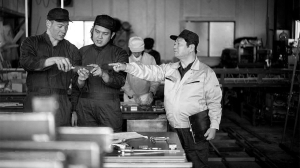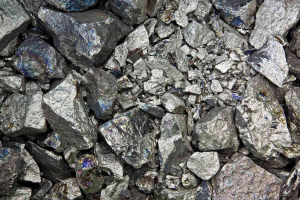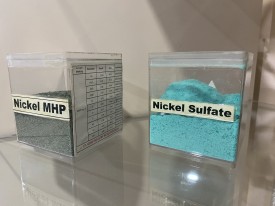Nickel smelters association asks govt to delay new royalties implementation
The Indonesian Nickel Smelters Association (FINI) has requested the government to delay the implementation of new royalties on nickel ore until the price of nickel on the international market − the London Metal Exchange (LME) − reaches US$17,000 per metric ton in contrast to the current three-month nickel contract on the LME of some $15,600 per ton.
FINI chairman, Alexander Barus, said that although they support the government's royalty policy, the timing of its implementation needs to be considered more carefully.
"We support the government's royalty plan, but we need to choose a more appropriate time," Barus said in a meeting with officials from the Ministry of Energy and Mineral Resources (ESDM) as quoted by Reuters on Thursday, April 17, 2025.
He cited that the association had asked the ESDM Ministry to postpone the new royalty policy until the nickel price on the LME reached at least $17,000 per ton. According to him, at that price level, the company's margin would be more likely to cover additional costs due to the increase in royalties.
The implementation of the higher royalty rates is scheduled to take effect at the end of this month, with rates varying between 14 and 19 percent, depending on the nickel price, a significant increase from the previous single royalty rate of 10 percent.
Semi-pure nickel pig iron will be subject to a royalty of 5 percent to 7 percent, while nickel matte will be subject to a royalty rate of 3.5 percent to 5.5 percent. In comparison, the previous royalty rates for nickel pig iron were 5 percent and 2 percent for nickel matte.
Analysts have earlier revised the nickel price outlook this year. Nickel prices are expected to fall to an average of $15,000 per ton, lower than the previous projection of $17,000 per ton. This price decline occurred amidst global oversupply conditions and the impact of trade policies imposed by U.S. President Donald Trump.
"The problem is, the prices of our products, such as stainless steel, nickel pig iron, and ferronickel, are also falling now. This will be even more burdensome with higher royalties," Barus said, while citing the concerns of nickel industry players.
The Indonesian Nickel Miners Association (APNI) also expressed similar concerns, considering the increasing operational costs, including fuel costs after the government withdrew biodiesel subsidies earlier this year. APNI also requested that the implementation of new royalties be postponed so that the nickel mining industry will not be burdened further.
New royalties
The government previously said that the new royalty policy aims to improve governance of the mineral and mining industry. In addition to nickel, royalties for other mining products, such as copper ore, copper concentrate, and processed tin, will also increase.
This policy was taken to address the government's widening budget deficit, due to declining tax revenues and increasing spending on various flagship programs of President Prabowo Subianto.
However, industry players warn that this policy could have an impact on the competitiveness and sustainability of the nickel mining industry in Indonesia, which is one of the largest nickel producers in the world.
Already have an account? Sign In
-
Start reading
Freemium
-
Monthly Subscription
20% OFF$29.75
$37.19/MonthCancel anytime
This offer is open to all new subscribers!
Subscribe now -
Yearly Subscription
33% OFF$228.13
$340.5/YearCancel anytime
This offer is open to all new subscribers!
Subscribe now







